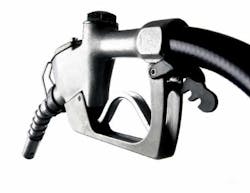The Indian Oil Corp. Ltd. (IOCL), the Bharat Petroleum Corp. Ltd. (BPCL) and the Hindustan Petroleum Corp. Ltd. (HPCL) have identified the locations and petrol pumps where the project will be implemented.“Retail automation at petrol pumps is new, and we are looking at deploying these systems at 1,000 petrol pumps in 14 states by yearend,” says Vimal Kapoor, managing director, Honeywell Automation India Ltd. (HAIL), “Our major customers in this segment are the public sector HPCL and IOCL, who are deploying these systems at their outlets.” Locking out adulteratorsA key facet of the technology-driven project, coming as it does after various measures dependent on manual intervention, is to introduce an electronic locking system for tanker-trucks transporting the fuel, and at select petrol pumps. Apart from making it more difficult for fuel adulterators, the companies are confident of offering improved customer service and enjoying greater control over the retail outlets.According to a BPCL official, the electronic locking system on tanker-trucks and underground tanks would be linked to a central computer system. It would help the company monitor sales and stocks.The automation covers various aspects of the outlets, including level gauges in underground tanks and gauges to check quality parameters of the fuel. Every time fuel is dispensed, a bill, giving details of the date, time, quantity of the purchase, the pump and the attendant who delivered the product, will be generated automatically.Automation of pumps will give oil companies accurate data on sales and control over any adulteration, which might happen at the retail end. These benefits will also flow to the customer.For Honeywell Automation India, the next step is to bring in a vehicle identification unit within the vehicle. This will allow the petrol pump to recognize the vehicle, fill it up and add the amount to the customer’s credit card, in a cashless transaction. This “unit” is an RFID chip on a fob that is read when in proximity to the pump, or when the customer waves it close to the reader.“This will help fleet owners who are concerned over theft, besides being a convenience. The system will not allow a driver to divert fuel from the vehicle’s fuel tank to a jerrycan, for instance,” Kapoor says. Critical massHowever, there is a catch: Honeywell needs critical mass before it can deploy these systems. “We need a large installed base; say, 40 percent of all petrol pump population in a city like Mumbai would be enough. We expect this will happen by December ’08,” Kapoor notes.Meanwhile, IOCL is spending $364 million on automation over two years, covering more than 2,000 of its 16,000 retail outlets, in the initial phase, including those of IBP, IOCL’s Director, Marketing, G. C. Daga, said in a press statement.The automation initiative is likely to be linked to the GPS-based tracking system of tankers from the depot to the retail outlet point and will also help inventory control. Federation of All-India Petroleum Traders Vice President M. Kannan hopes that the project will bring back customers who shifted loyalty to the private companies.Uday Lal Pai, [email protected], is a freelance journalist based in India
Leaders relevant to this article:

